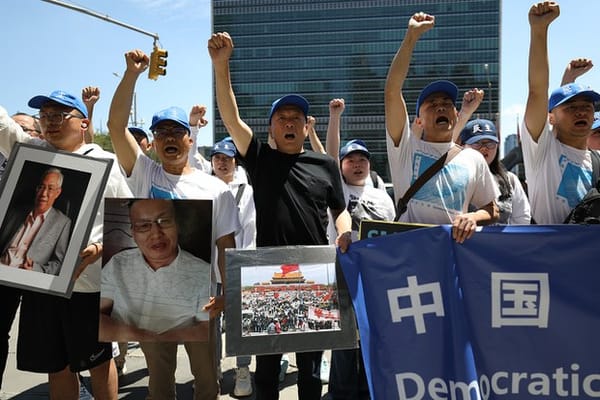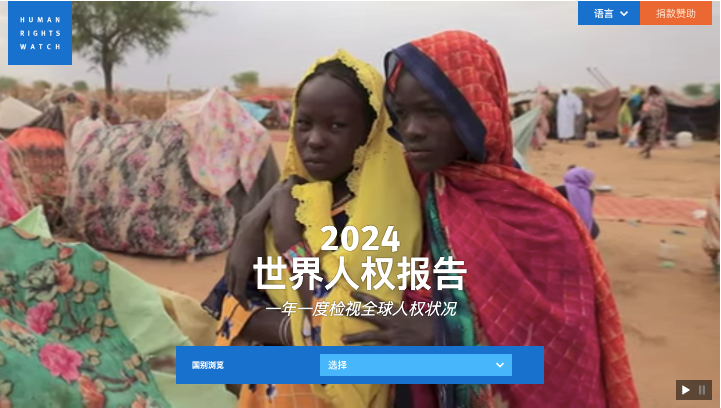Xi Jinping’s paranoia makes China isolated and closed

China's economic decline and deteriorating international relations have attracted attention from the outside world. Recently, the British "Economist" magazine pointed out in relevant reports that the paranoia of CCP leader Xi Jinping is making China become isolated and closed.
"The Economist" reported that last year, the number of foreigners entering and leaving China decreased by about 62 million compared with 2019 before the outbreak of the new crown epidemic, a drop of more than 63%. In addition, during the three years when the new coronavirus epidemic was raging, Xi Jinping almost did not go abroad. The number of days he stayed abroad was only 13 days in 2023 and 28 days in 2019. Last September, Xi Jinping also missed the G20 summit hosted by India.
The Economist report also mentioned that U.S. President Biden and Xi Jinping met in November last year and agreed to "work to further significantly increase scheduled passenger flights." But until the end of last year, China still had only 63 direct flights between the two countries every week, far fewer than the approximately 300 flights before the outbreak of the new crown epidemic.
The report also pointed out that American researchers are worried about being accused of helping China by sharing advanced technology, so they have become cautious in cooperation with Chinese academic circles. In 2020, the number of scientific papers co-published by U.S. and Chinese researchers began to decline. Data from a British analysis company shows that the proportion of American co-authors in China's international collaborative research papers has dropped from a peak of 47% in 2013 to 32% in 2022.
The Economist measured the number of foreign tourists visiting China, the number of flights, the level of academic exchanges, investment flows and Xi Jinping’s personal travel arrangements, and concluded that China’s top-level decisions are more security-oriented.
The Economist pointed out that advertisements in Chinese government departments and on the streets often warn people to beware of foreign spies, claiming that foreign tourists, journalists, and businessmen may want to steal China's secrets. Xi Jinping's paranoia has made China isolated and closed, and China's cross-border exchanges are shrinking.
Propaganda cartoons and posters plastered on Beijing street walls warning local residents to be aware of foreign spies. (AFP)
Wu Jianzhong, an associate professor at Taipei University of Marine Science and Technology, said in an interview with Radio Free Asia: "It can be seen that after Xi Jinping came to power, Xi Jinping's paranoia, Xi Jinping's sense of security, and Xi Jinping's anxiety have all resulted in China's economy being unable to move forward. From the original dual Circulation, he originally thought that the "Belt and Road" would promote external circulation, but now internal circulation and domestic demand are sluggish, and foreign tourism during the Spring Festival has even been downgraded to Harbin. From tourism alone, we can see that China is becoming more closed and inward. , in line with Xi Jinping’s security concerns.”
Wu Jianzhong also mentioned that the World Internet Conference was recently held in Wuzhen, Zhejiang, and platforms that were originally free to access Facebook and Twitter have turned into black technology: "This kind of self-deception and the inversion of cause and effect has led to China's economic sluggishness, and there is no way The situation of China’s external relations. Seeing China sentence Australian writers to death only makes China’s relations with the outside world more and more difficult.”
In an interview with Radio Free Asia, Wu Se-chi, an advisory committee member of a Taiwanese think tank, also pointed out: "Xi Jinping has become more and more concerned about security issues since his third term, trying to establish restrictions on domestic contacts with overseas countries and relevant foreign institutions. It may endanger national security, including political security, economic security, and social security, which will lead to some restrictions on Chinese people's interactions with other foreigners or foreign institutions."
Wu Sezhi mentioned that Xi Jinping’s third term pays more attention to the so-called overall social security awareness, including the amendment of the "Counterespionage Law" or the "National Secrets Law", etc., which has indeed made relevant foreign companies and institutions less cautious about operating in China. Feeling a certain degree of risk will also have some so-called warning effects on the public; indeed, in terms of restrictions, it will further distance China from the rest of the world. At the same time, China's sluggish economic development has made the authorities more conservative, which is more prominent in the characteristics of Xi Jinping's rule.
Wu Sezhi said that in Xi Jinping’s third term, or even his fourth term after 2027, he is likely to tighten internal control and strengthen the promotion of internal security: “Whether it is in a patriotic or nationalistic way , all of which are stacking domestic restrictions on contact with the outside world. The official statement may mention reform and opening up, but in fact the overall atmosphere is very tight. This is a problem that China will face in the future, as the Economist said to the status.



